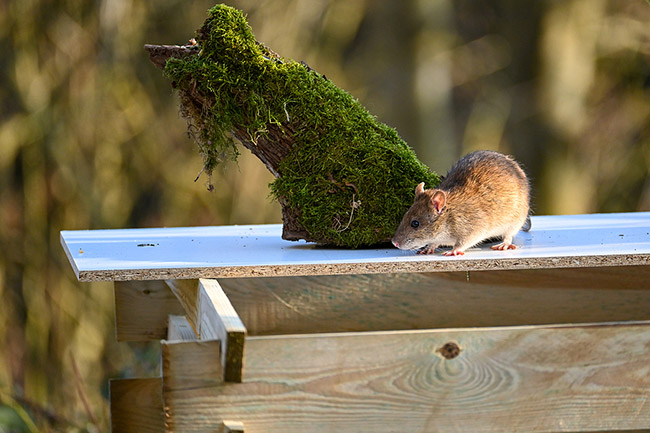When it comes to getting rid of rats, there are a few effective methods you can try. Here are some options:

Rat Traps
Traditional rat traps can be quite effective. Make sure to place them in areas where you’ve noticed rat activity, using attractants that rats are sure to enjoy. It is most important that the traps are placed either in boxes or covered so that there cannot be any chance of something being harmed which is unintended, such as cats, dogs, hedgehogs and birds. Some none target species are protected and carry a hefty fine if caught with anything other than rodents. It is important to select the correct trap for what you are trying to get rid of and is important to remember there are different traps for different rodents. You should always follow the trapping rules set out in Spring Trap Approval Orders and Code of Practice for Use of Vertabrate Traps.
Rodenticides
These should not be your first choice and should not be the first tool selected from the toolbox. The hierarchy should always be followed starting with traps. There are some rodenticides available to the public that can help eliminate rats, its worth noting that these are not professional grade and will not be as strong as the rodenticide used by a professional. However, it’s essential to use them with caution, following the instructions provided, as they can be harmful to humans, pets and other none target species if not used properly, the misuse of rodenticide carries huge fines and can sometimes lead to imprisonment. It’s best to consult with a pest control professional as they have the training, knowledge, qualifications and insurance. Sometimes self treatments by none professionals can make things very difficult for professionals if the DIY treatment has been unsuccessful. Rats are extremely clever and we have all heard the saying once bitten twice shy. If you use a none professional bait and the rodent eats it, but it isn’t enough to kill it in most cases you will never get the rat to eat anything similar every again Then when a professional comes along it makes life a lot more difficult and a lot more costly. Our advice would always be to have a professional pest controller to take on the work, this will generally end up being cheaper in the long run.
Seal entry points
Rats can enter your property through small cracks and openings. Inspect your home for any potential entry points and seal them with a material suitable to stop rodents. Its worth hiring a pest control professional in this case as they have the knowledge needed, unlike those with an untrained eye.
Keep a clean environment
Rats are attracted to food and shelter, so it’s important to keep your surroundings clean and tidy. Store food in airtight containers, dispose of garbage properly, and avoid leaving pet food out overnight. Keep gardens well maintained.
Seek professional help
If you’re dealing with a severe rat infestation or if your efforts aren’t proving effective, it’s advisable to contact a professional pest control service. They have the expertise and knowledge to safely and efficiently deal with the problem. Companies like us that have been in the industry for 25 years, who have trained and passed exams to gain qualifications to carry out this work effectively and safely. This is what we do for a living.
Should I be worried if I see a rat in my garden?
If you spot a rat in your garden, it’s generally a good idea to take some action to address the situation. While one rat sighting doesn’t necessarily indicate a full-blown infestation, it’s important to be proactive and prevent the problem from escalating. Here are a few reasons why you should be concerned:
Health risks
Rats can carry various diseases, some of which can be transmitted to humans. These diseases include leptospirosis, salmonellosis, and rat-bite fever. If rats contaminate your garden or any surfaces with their urine, droppings, or saliva, there’s a potential risk to your health and that of your pets.
Property damage
Rats have strong teeth that can gnaw through various materials, including wood, plastic, and even electrical wiring. Their constant chewing can lead to structural damage to your garden, shed, or home. They may also dig holes and burrows, which can undermine the stability of your garden.
Increased population
Rats are prolific breeders, and if you spot one rat, it’s likely there are more nearby. They can quickly multiply, leading to a larger infestation that becomes more challenging to control. Each female rat (there is likely more than one) has a gestation period of just 21 days, they have between 7-8 babies at a time and have 3-6 litters per year. Each new female then only needs 10-12 weeks before they reach sexual maturity and thus this all starts again.
Taking action early on can help prevent further problems. If you’re unsure or the situation seems severe, it’s best to consult with a professional pest control service for guidance and assistance.
Remember, it’s always better to be safe than sorry when it comes to dealing with rats.

